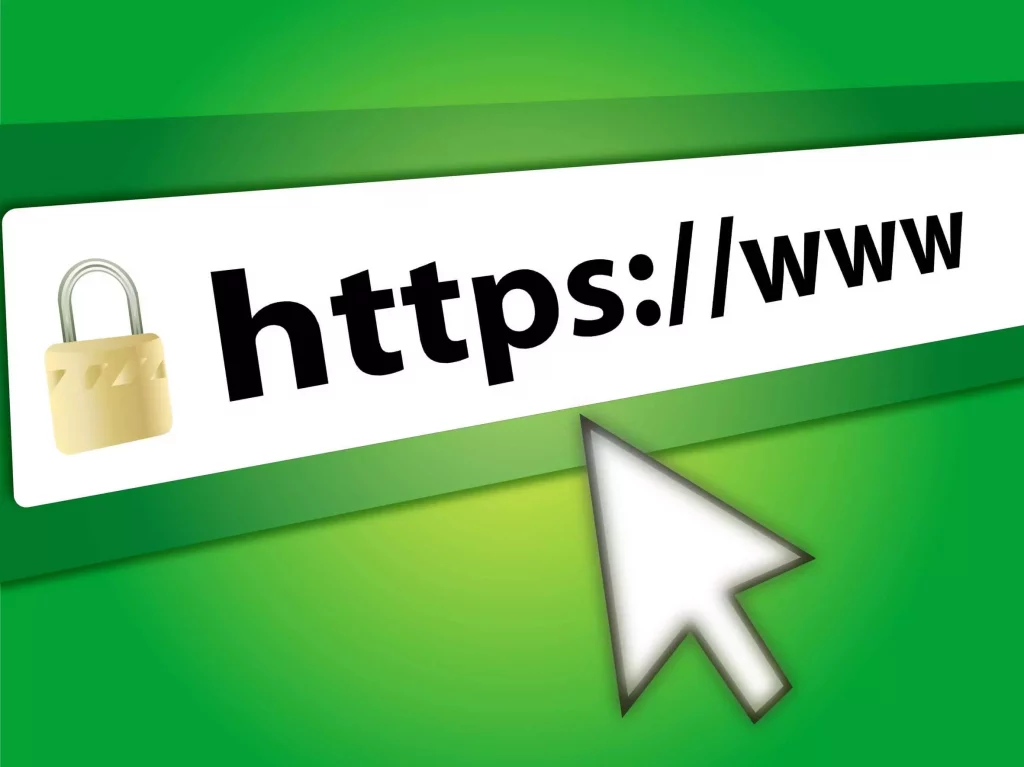What exactly is an SSL certificate?
An SSL certificate is a digital certificate that authenticates the identity of a website and allows for an encrypted connection. SSL is an abbreviation for Secure Sockets Layer, a security protocol that establishes an encrypted connection between a web server and a web browser.
SSL certificates must be added to websites by businesses and organizations in order to safeguard online transactions and keep consumer information private and secure.
In a nutshell, SSL secures internet connections and prohibits hackers from accessing or changing data exchanged between two computers. SSL safeguards the website you are visiting if you see a padlock symbol next to the URL in the address bar.
How Does an SSL Certificate Function?
An SSL certificate is made up of two parts: the public key and the private key. When applying for an SSL certificate, you must first prepare a Certificate Signing Request (CSR) that includes corporate information for verification reasons. You will obtain your SSL certificate when the CA validates this information. Once you have your SSL certificate, the private key is equally crucial since it helps to encrypt and authenticate connections, but it is critical that you keep this key secret so that it cannot be exploited for identity theft.
The public key that is linked with your SSL certificate is just that: public. It enables people to verify SSL validity without access to your private key. Your web server is now safe, and all connections between devices are encrypted. This means that anybody intercepting connections between your server and browsers will be unable to view the information being transmitted, safeguarding any private data interactions.
What is the procedure for obtaining an SSL certificate for my website?
The first step is to figure out what kind of certificate you need. For example, if you host content on numerous platforms (on distinct domains/subdomains), you may need different SSL certificates.
For the most part, a regular SSL certificate will enough to protect your material. However, if your company is in a regulated area, such as banking or insurance, you should consult with your IT team to verify you’re satisfying the precise SSL certificate standards imposed by your business.
SSL certificates vary in price, however you can acquire a free certificate or pay per month for a personalised certificate. On the free side, Let’s Encrypt provides certificates at no cost, however I highly urge that you have someone knowledgeable about your website’s DNS and technical setup assist you. These certificates will also expire in 90 days, so keep them up to date. Some CMS solutions, such as HubSpot’s free CMS, will include a free SSL to assist you get started with website security.
Who Can Assist Me in Obtaining an SSL Certificate?
Only via an application with a Certificate Authority can an SSL certificate that is trusted by browsers be acquired. You do not, however, have to tackle it alone. Secure128 can assist you in determining the appropriate degree of protection for your needs, guiding you through the application and verification processes, as well as managing, renewing, and supporting your SSL certificates.
Certificate Types
SSL certificates are classified as encryption and validation, as well as domain number. They are classified into three types and may be applied for on the SSL website. A Certificate Authority (CA), which is software created particularly for operating and providing these certificates, processes certificates.
Certificate for Domain Validation (DV)
The Domain Validation (DV) certificate provides a low degree of encryption, which is shown by a green padlock next to the URL in the address bar. This is the fastest validation available, and it requires just a few corporate papers to apply.
Certificate with Organization Validation (OV SSL)
This certificate validates your company and domain validity. Organization Validated (OV) SSL certificates are acquired in two phases and provide a medium degree of encryption.
Extended Validation (SV) SSL certificates are the most costly to get, but they are useful in demonstrating the authenticity of your domain from the address bar.
SSL Certificates using wildcard characters
Wildcard SSL Certificates are classified as “domain and subdomain number.” Wildcard SSLs guarantee that if you acquire a certificate for one domain, you may use it for subdomains as well.
SSL Certificate for Unified Communications (UCC)
Unified Communications certificates (UCCs), also known as Multi-domain SSL certificates, enable numerous domain names to be included on a single certificate.
